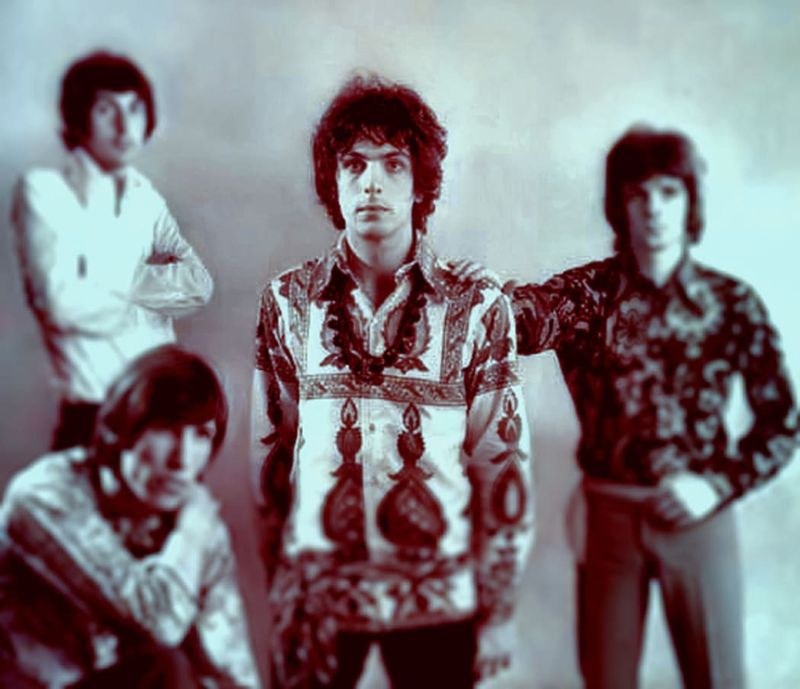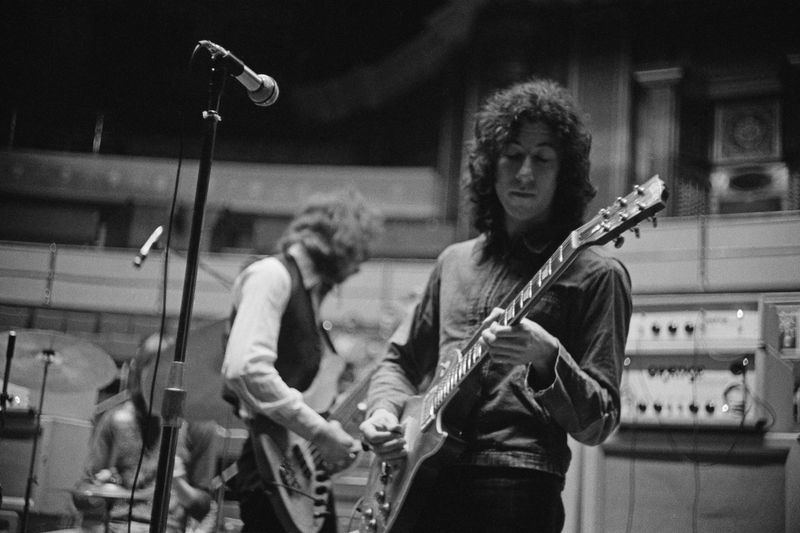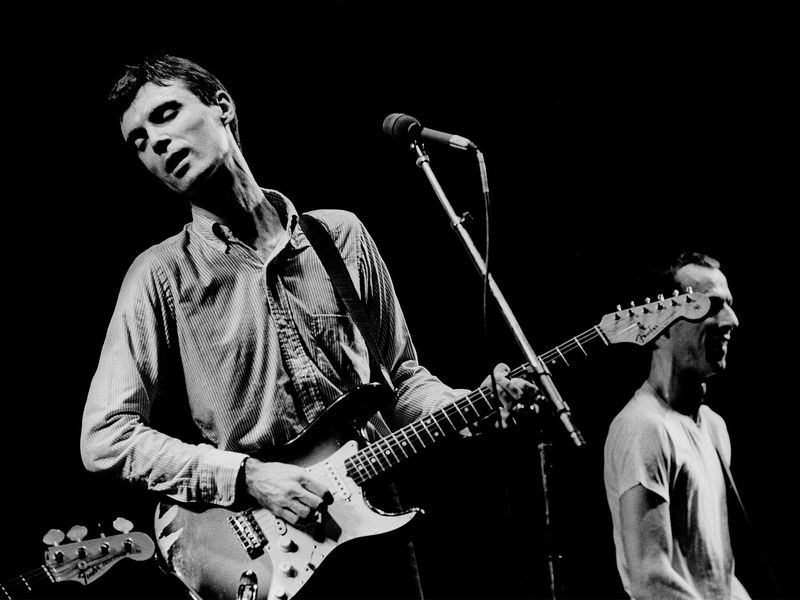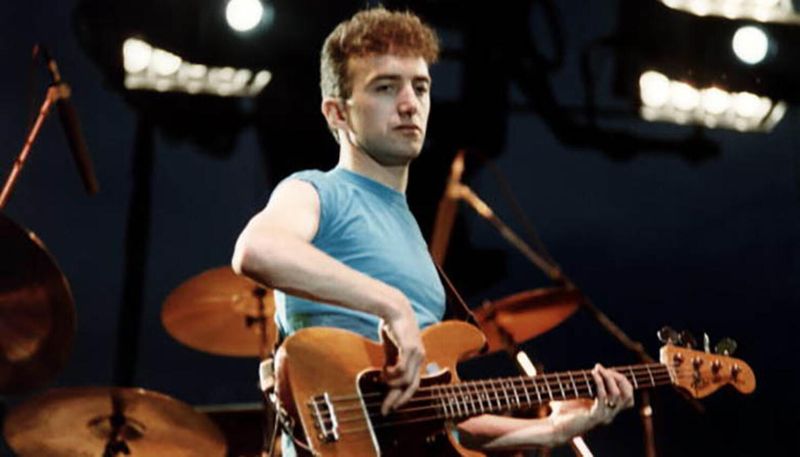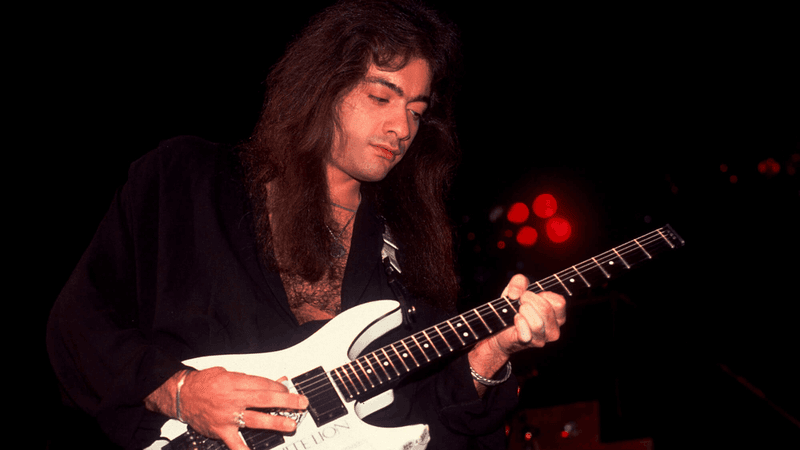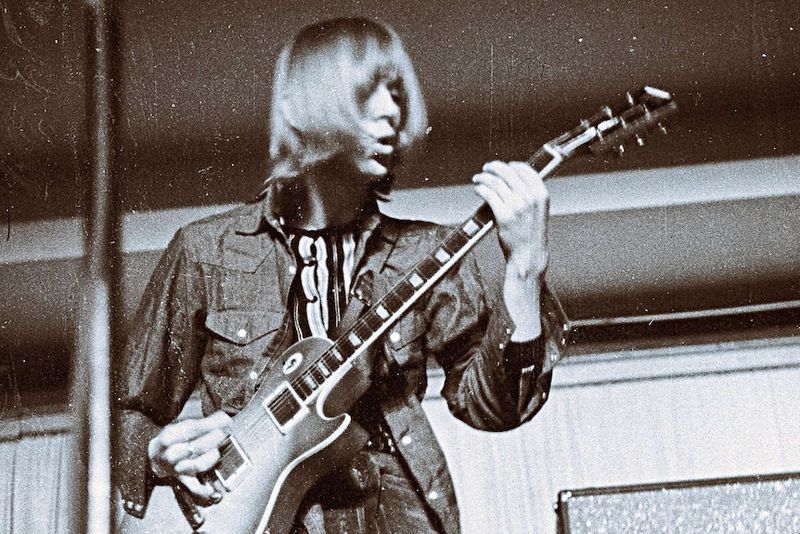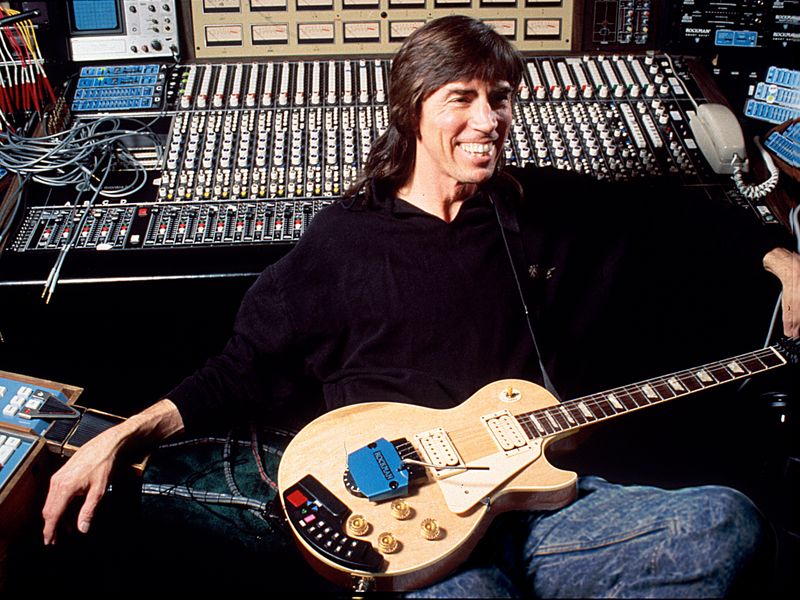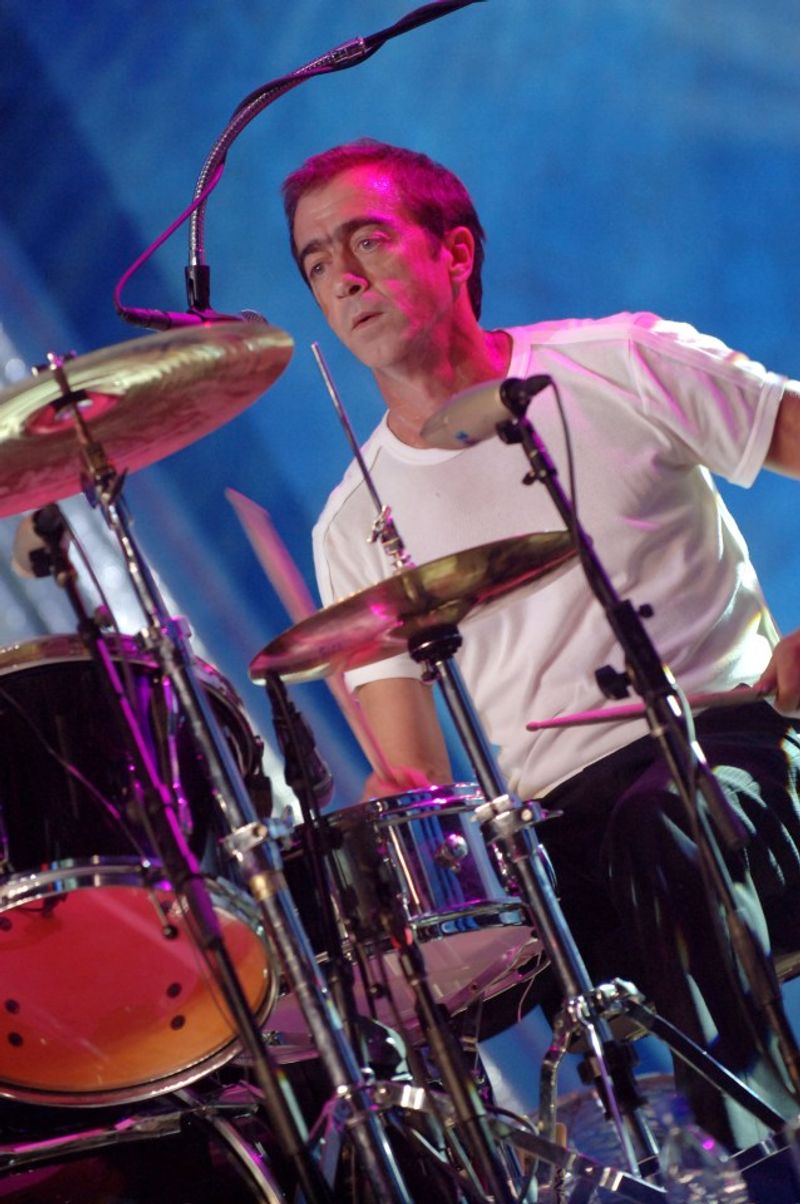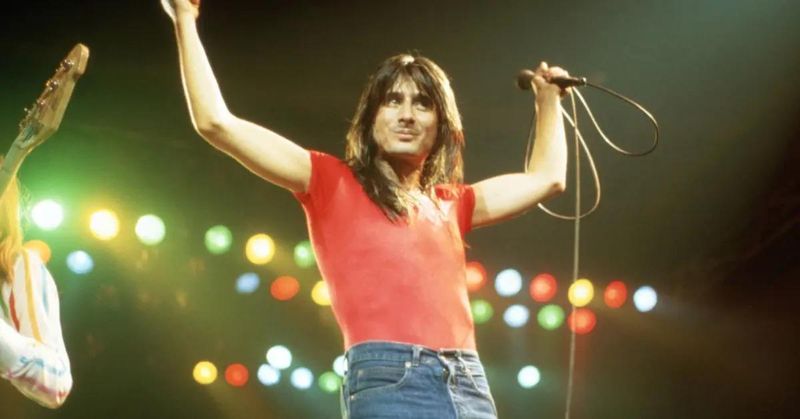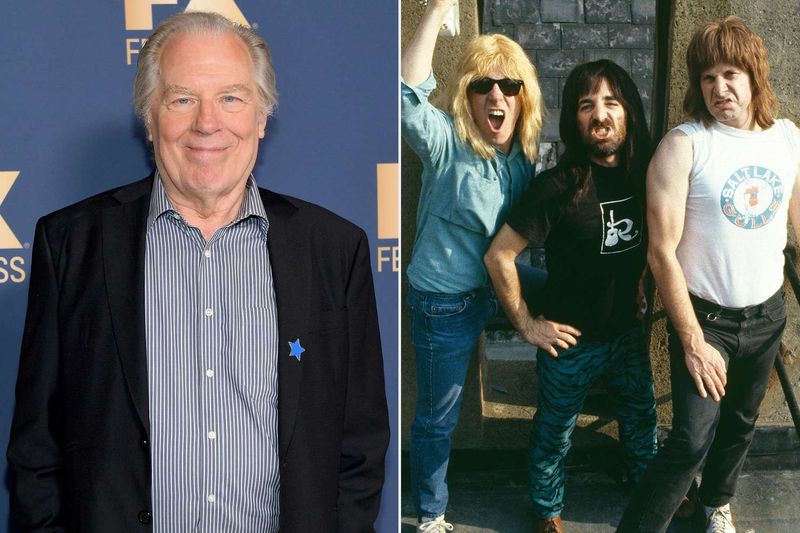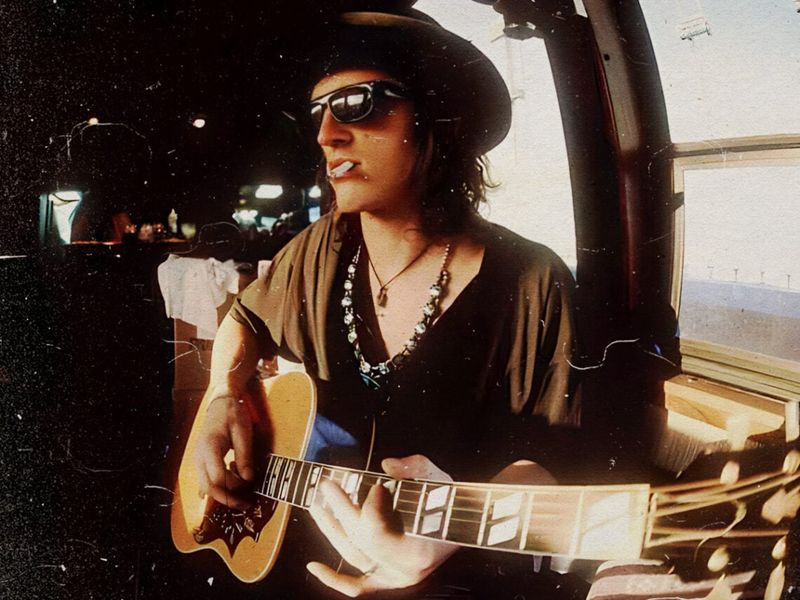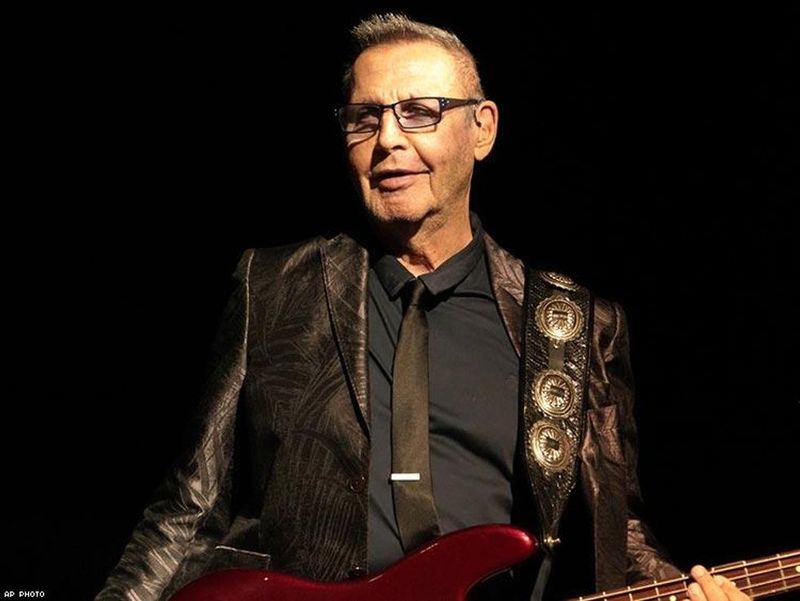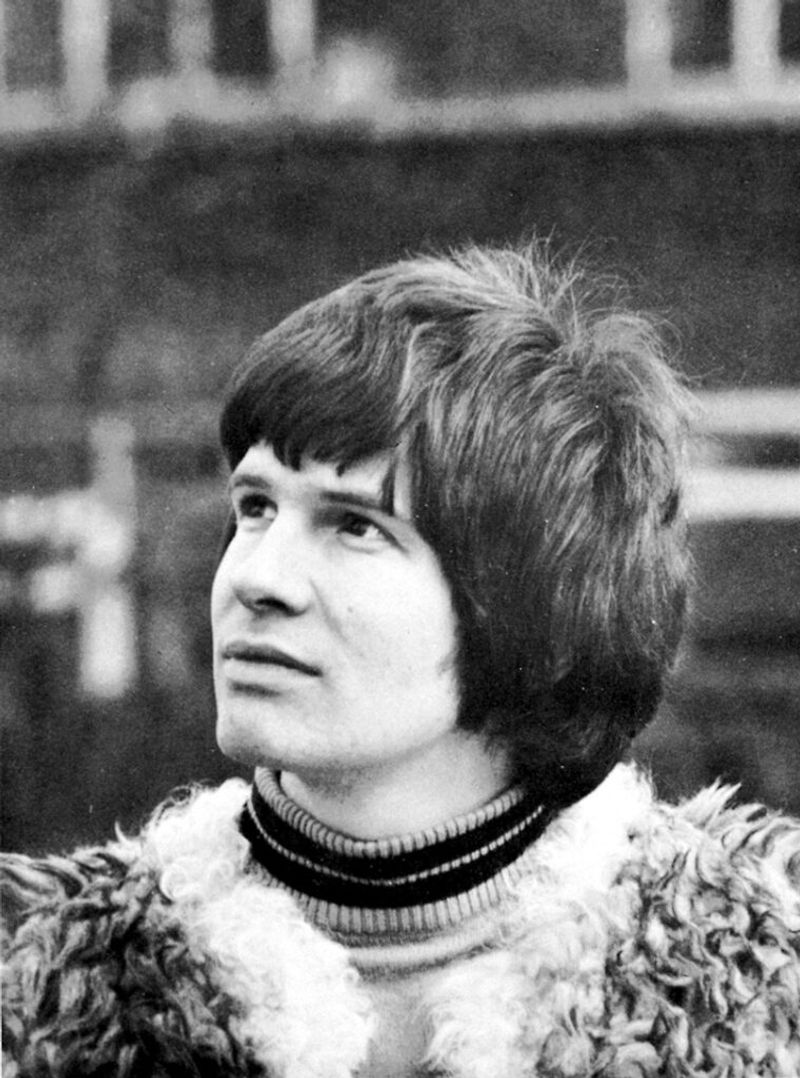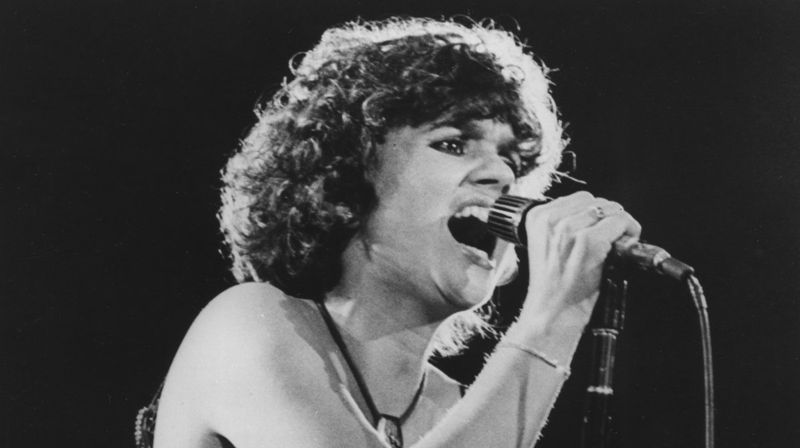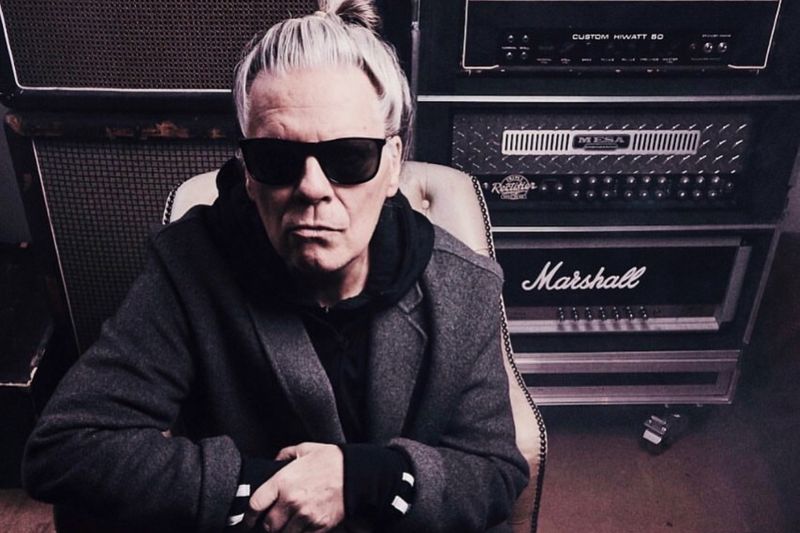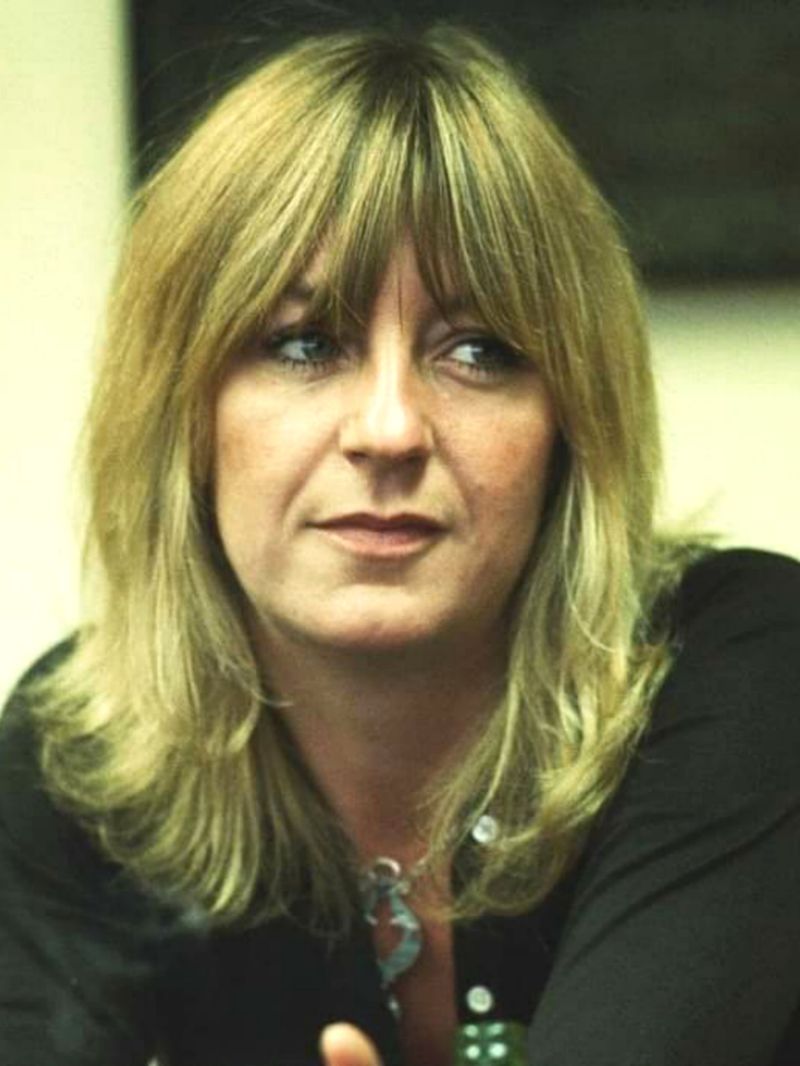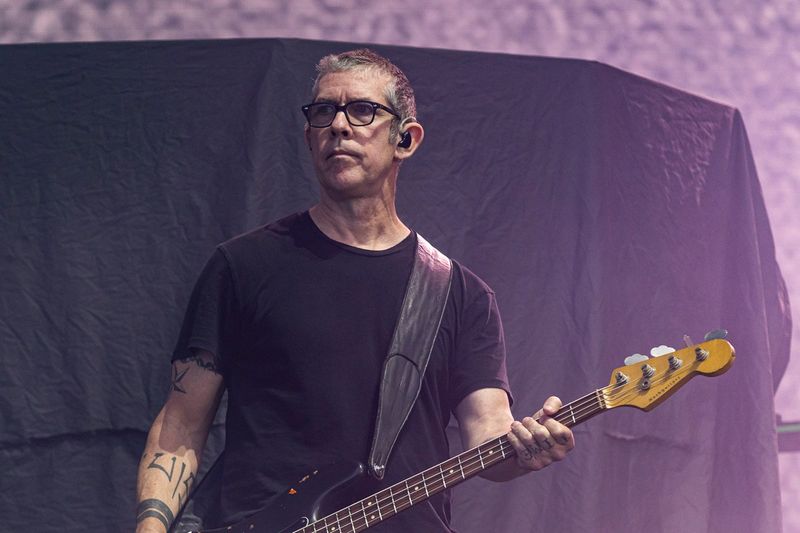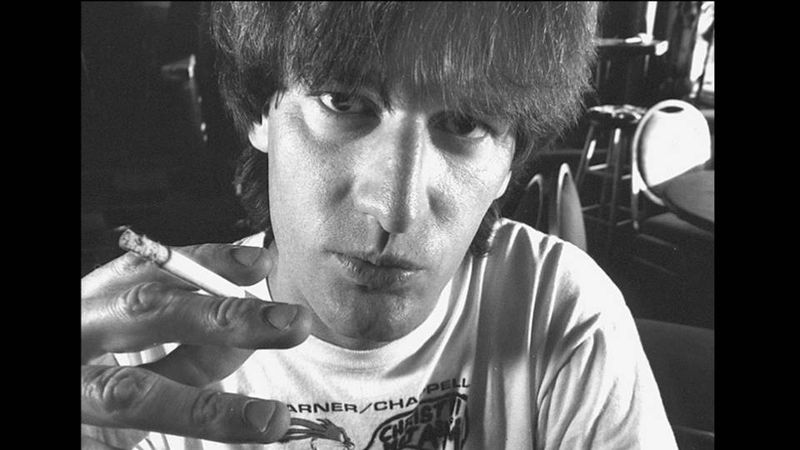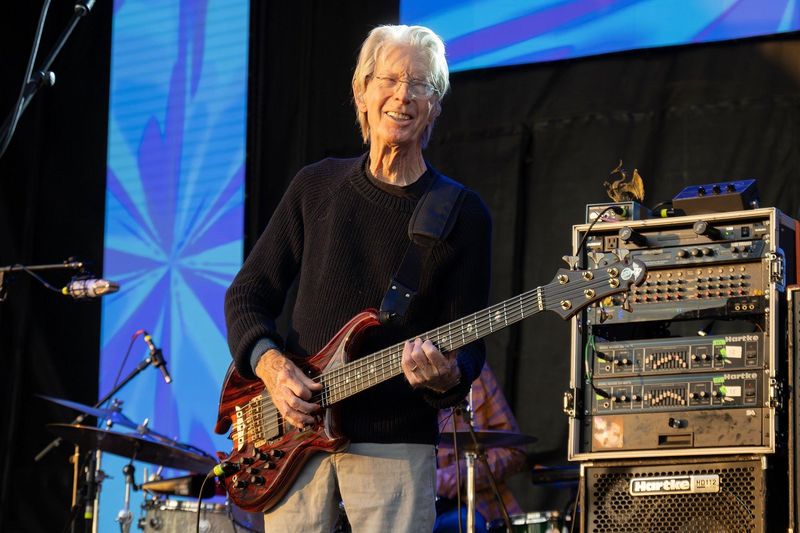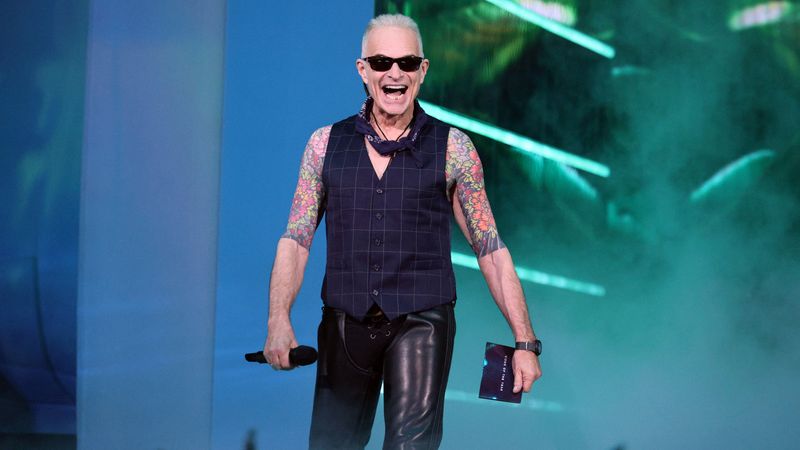They once ruled the airwaves, headlined festivals, and made crowds roar with just a riff or a scream. But not all rock legends stay in the spotlight forever. Some chose peace over fame. Others battled burnout, illness, or tragedy. Whether they disappeared quietly or vanished at their peak, these 27 rock icons walked away—and left fans wondering why.
1. Syd Barrett (Pink Floyd)
Syd Barrett, the enigmatic founder of Pink Floyd, was a pioneer of psychedelic rock. His innovative approach to music set the stage for the band’s early success. However, Barrett’s mental health struggles led him to leave the band in 1968, retreating to a life of seclusion.
His disappearance from the music scene was as abrupt as his rise. Fans were left with only whispers and legends of his genius. He lived a quiet life away from the limelight until his passing in 2006, leaving a lasting impact on music history.
2. Peter Green (Fleetwood Mac)
Peter Green, the blues-rock virtuoso, co-founded Fleetwood Mac and enchanted audiences with his soulful guitar playing. However, his struggle with mental illness and drug use led him to leave the band in 1970.
Green’s departure marked the end of an era for Fleetwood Mac, and he spent much of his life in relative obscurity. Despite his challenges, Green’s influence on the music world remains profound, with many citing him as one of the greatest guitarists of all time.
3. David Byrne (Talking Heads)
David Byrne, the charismatic frontman of Talking Heads, left the band in 1991 to explore solo projects and artistic pursuits. Known for his innovative approach to music and performance, Byrne has continued to captivate audiences with his unique style.
Though he never returned to Talking Heads, his influence on the band and the music world is undeniable. Byrne has since focused on Broadway, art, and collaborations, leaving a legacy that transcends his time with the band.
4. Ritchie Blackmore (Deep Purple, Rainbow)
Ritchie Blackmore, a guitar legend known for his work with Deep Purple and Rainbow, made a surprising shift away from rock to form Blackmore’s Night, a Renaissance folk duo with his wife.
This unexpected turn reflected his passion for medieval music, a stark contrast to his rock roots. Blackmore’s departure from the rock scene marked a new chapter, where he embraced acoustic instruments and historical themes, leaving behind the electric guitar riffs that made him famous.
5. John Deacon (Queen)
John Deacon, Queen’s bassist, chose a path of privacy after Freddie Mercury’s death in 1991. Known for his reserved nature, Deacon was a vital part of Queen’s legendary sound. Despite the band’s continued success, he decided to retire from the music industry.
His decision to step back was influenced by a desire to avoid the pressures of fame and maintain a simple life. While Queen continued to tour with other members, Deacon remained out of the public eye, leaving a legacy of iconic bass lines and soulful performances.
6. Dan Spitz (Anthrax)
Dan Spitz, known for his shredding guitar skills with Anthrax, traded his thrash metal lifestyle for the precision and artistry of watchmaking.
This career change was as surprising as it was profound. Spitz’s transition reflects a passion for intricate craftsmanship, a world away from the loud stages of heavy metal. His dedication to watchmaking showcases a different side of the musician, one that values detail and timeless beauty over the chaotic energy of rock.
7. Vito Bratta (White Lion)
Vito Bratta, once a rising guitar hero with White Lion, stepped away from the music industry in the early ’90s. Known for his technical skill and melodic solos, Bratta chose to leave the spotlight to care for his ailing father.
His departure was marked by a withdrawal from public life, leaving fans with cherished memories of his performances. Though he seldom re-emerged, his influence on guitarists remains, a testament to his talent and dedication to family.
8. Danny Kirwan (Fleetwood Mac)
Danny Kirwan, an early member of Fleetwood Mac, was known for his exceptional guitar work and songwriting. However, his career was cut short due to struggles with alcoholism and erratic behavior.
Kirwan’s exit from the band led him down a path of obscurity, including periods of homelessness. Despite the challenges he faced, his contributions to Fleetwood Mac’s legacy are still celebrated by fans and musicians alike.
9. Trent Reznor (Nine Inch Nails)
Trent Reznor, the creative force behind Nine Inch Nails, took a step back from the intense touring schedule to focus on film scoring and family life. Known for his dark, industrial sound, Reznor’s decision allowed him to explore new artistic avenues.
Though he later returned to music, this period of reflection marked a significant change in his career, showcasing his versatility and depth as an artist.
10. Tom Scholz (Boston)
Tom Scholz, the mastermind behind Boston, is known for his perfectionist approach to music. After the band’s initial success, Scholz famously retreated between albums to create meticulously crafted songs.
His absence from the public eye was marked by a dedication to his craft that defied the typical rock star lifestyle. Scholz’s focus on quality over quantity left fans eagerly awaiting each new release, making his music timeless.
11. Bill Berry (R.E.M.)
Bill Berry, the drummer for R.E.M., left the band in 1997 following a brain aneurysm. His departure marked a shift from the rock star life to a more serene existence on a farm in Georgia.
Berry’s choice to step away was driven by a desire for a quieter life, free from the pressures of fame. His contributions to R.E.M.’s sound remain a vital part of the band’s enduring legacy.
12. Steve Perry (Journey)
Steve Perry, the iconic voice of Journey, left the band in 1998 due to hip surgery and personal loss. Known for his powerful vocals, Perry’s decision to retire left fans yearning for his return.
Though he later released a solo album, his years away from the spotlight were marked by introspection and healing. Perry’s voice continues to resonate, a symbol of both his talent and the band’s lasting impact.
13. Michael McKean (Spinal Tap)
Michael McKean, known for his role in Spinal Tap, transitioned from rock satire to acting, appearing in acclaimed series like Better Call Saul.
His portrayal of the fictional band member showcased his comedic talent, while his acting career highlighted his versatility. McKean’s shift from music parody to serious roles marks a unique journey, one that continues to entertain and inspire.
14. Izzy Stradlin (Guns N’ Roses)
Izzy Stradlin, the rhythm guitarist for Guns N’ Roses, left the band in 1991 at the height of their success. Known for his raw, authentic sound, Stradlin pursued a solo career with little fanfare.
His decision to step away from the chaos of fame allowed him to explore music on his own terms, leaving behind the rock-star lifestyle for a more peaceful existence.
15. Chuck Panozzo (Styx)
Chuck Panozzo, the bassist for Styx, stepped back from the band to focus on his health and activism. After revealing he was HIV-positive, Panozzo’s journey became one of resilience and advocacy.
Though he occasionally joins the band for performances, his primary focus has been on raising awareness and support for LGBTQ+ issues, making a difference offstage.
16. Chris White (The Zombies)
Chris White, the bassist and songwriter for The Zombies, transitioned to producing after the band’s initial success. Known for his creative contributions, White chose to leave the touring life behind.
His work behind the scenes helped shape the band’s enduring sound, leaving a legacy that continues to influence new generations of musicians.
17. Kim Deal (Pixies, The Breeders)
Kim Deal, the bassist for the Pixies, left the band in 2013, choosing to focus on solo projects and avoid the pressures of constant touring. Known for her distinctive style and voice, Deal’s departure marked a new chapter in her career.
Her continued influence in the indie rock scene is a testament to her talent and individuality, as she creates music on her own terms.
18. Linda Ronstadt
Linda Ronstadt, a giant of the ’70s folk-rock scene, retired due to Parkinson’s disease, which ended her singing career. Known for her powerful voice and versatility, Ronstadt’s decision to step away was a great loss to her fans.
Her impact on music remains profound, with a legacy that continues to inspire artists across genres.
19. Jeff Mangum (Neutral Milk Hotel)
Jeff Mangum, the enigmatic frontman of Neutral Milk Hotel, retreated from the public eye after releasing the critically acclaimed album ‘In the Aeroplane Over the Sea.’ Known for his haunting, poetic lyrics, Mangum’s withdrawal left fans yearning for more.
His brief return for tours was celebrated, but he continued to shun interviews and mainstream fame, maintaining a mysterious aura.
20. Andy Taylor (Duran Duran)
Andy Taylor, the guitarist for Duran Duran, left the band multiple times, revealing in 2022 that he was battling cancer. Known for his energetic stage presence, Taylor’s absence from recent reunions shocked fans.
His journey reflects resilience and a focus on personal health, leaving a legacy of unforgettable performances and enduring music.
21. Don Felder (The Eagles)
Don Felder, a key member of The Eagles, left the band following legal disputes. Known for his guitar work on hits like ‘Hotel California,’ Felder pursued a solo career post-Eagles.
His departure allowed him to explore new musical directions, though he never returned to the band’s extensive touring schedule, maintaining a low profile instead.
22. Rick Wright (Pink Floyd)
Rick Wright, the innovative keyboardist of Pink Floyd, was initially pushed out of the band in the early ’80s but returned quietly later. Known for his atmospheric soundscapes, Wright remained the most reserved member of the band.
His contributions to Pink Floyd’s iconic sound are undeniable, and his quiet return was a testament to his enduring talent.
23. Christine McVie (Fleetwood Mac)
Christine McVie, the soulful voice of Fleetwood Mac, left the band in 1998 to enjoy a peaceful life in the English countryside. Known for her heartfelt songwriting, McVie’s departure marked a period of reflection and solitude.
Her return to the band years later was celebrated, but her time away highlighted her desire for a quieter existence away from the rock star limelight.
24. Eric Avery (Jane’s Addiction)
Eric Avery, the bassist for Jane’s Addiction, focused on film scoring and solo projects after the band’s first breakup. Known for his innovative bass lines, Avery’s decision to step back from the band allowed him to explore new creative avenues.
Though he rejoined occasionally, his low profile reflects a desire to pursue art on his own terms.
25. Doug Hopkins (Gin Blossoms)
Doug Hopkins, the talented writer behind Gin Blossoms’ biggest hits, faced personal demons that led to his dismissal from the band. Known for his poignant songwriting, Hopkins struggled with alcoholism and depression.
Tragically, he died shortly after leaving the band, a story of lost potential and unfulfilled dreams that continues to resonate with fans.
26. Phil Lesh (Grateful Dead)
Phil Lesh, the bassist for Grateful Dead, scaled back his performances due to health issues. Known for his improvisational skill and unique sound, Lesh’s decision to focus on personal projects and family life marked a new chapter.
Though he no longer tours extensively, his contributions to the Grateful Dead’s legacy remain a significant part of music history.
27. David Lee Roth (Van Halen)
David Lee Roth, the flamboyant frontman of Van Halen, quietly retired in 2022, leaving the rock world stunned. Known for his over-the-top stage antics and charisma, Roth’s decision to step away was influenced by health and aging.
His unexpected exit marked the end of an era, leaving fans with memories of energetic performances and legendary hits.
